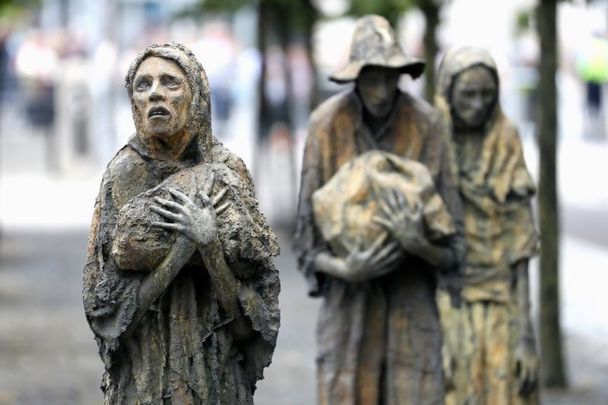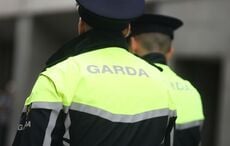The story of the catastrophe that unfolded in Ireland after 1845 is familiar to many Irish Americans.
The resulting deaths and mass emigration changed Ireland, North America, and many other parts of the world, with hundreds of thousands of people today viewing the Great Hunger as their origin story.
Less well-known is the remarkable involvement of peoples throughout the world who responded to the starvation in Ireland with humanity and compassion. They were the embodiment of the “kindness of strangers.”
The recent discovery of archival records in Canada has revealed the extent of gifts from Indigenous Peoples who, familiar with poverty and repeated removals from their ancestral homes, responded to news of the hunger in Ireland by sending money from their own limited resources. These interventions mirrored the generosity of the Choctaw and Cherokee Nations south of the border. At the time, these contributions were patronizingly referred to as examples of White “civilization” having benefitted “barbarous” peoples.
Contemporary records, however, reveal that the donations were motivated by a common understanding of what it meant to be oppressed, and a shared empathy towards their fellow human beings, even those they had never met.
There are multiple similar stories of impoverished people from all corners of the world sending money, food, and clothing to Ireland in the dark days of “Black ’47,” when relief from the British government was piecemeal, parsimonious, and given begrudgingly. The donors ranged from carpet sweepers in Calcutta in India, to enslaved peoples in the Southern States of America, and to Frederick Douglass, who has recently visited Ireland.
Moreover, in contrast to the demeaning way in which official relief was provided, private assistance often gave dignity and hope to the recipient.
Relief also came from closer to home, too, with many Irish people coming to the assistance of their countrymen and women. While the magnificent work of Irish Quakers has been widely acknowledged and praised, they were not alone.
The acclaimed novelist, Maria Edgeworth, intervened to provide relief to the poor in her community. Although in her 80th year, she used her own fame on both sides of the Atlantic to send an appeal to women in England and America asking them to assist Ireland. In addition, she donated all income from her short story, "Orlandino," to the local relief committee. She intervened in more practical ways, asking the Quakers in Dublin to provide her with leather so that the local men and boys could make brogues—shoes. She pointed out that many working on the public works had no footwear. She also opened a soup kitchen, which was operated by local women.
Edgeworth died in May 1849, when famine was still raging in many parts of Ireland. Today, she is rightly remembered as a gifted novelist, but her role during the Great Hunger makes her one of the many unsung heroes of that tragedy.
*Professor Christine Kinealy, the author of "The Kindness of Strangers. Charity and the Great Hunger," and joint editor of "Heroes of Ireland’s Great Hunger," will be speaking on Saturday, June 1 at 2 pm the American Irish Historical Society about the various people who came to Ireland’s assistance during the Great Hunger, including the remarkable donations from Indigenous Peoples across North America.
You are invited to this free event jointly hosted by the American Irish Historical Society, Ireland’s Great Hunger Institute at Quinnipiac University, the Irish Heritage Trust, and the National Famine Museum, Strokestown Park. It is funded by the Government of Ireland's Emigrant Support Program.
More details about the event, "Choctaw & Cherokee Irish Famine Aid, Queen Victoria, & the British Relief Association," can be found here on the AIHS website.




Comments